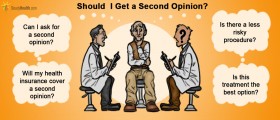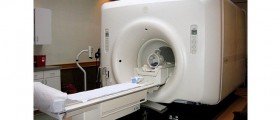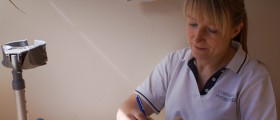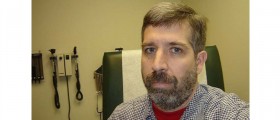there was a 75 percent blockage somewhere in a main artery that my cardiologist told me was a very high risk procedure and hard to get to and now it is 100 percent blocked and they want to try to manage it by medication. I had 2 heart attacks in a period of l1 days the last time was health netted to hospital. I feel i need second opinion.
Loading...
Hi.
Seeking a second opinion, especially in complex and high-risk medical situations like yours, is a very reasonable and often advisable course of action. Here's a guide on how to proceed:
-
Right to a Second Opinion: Understand that it's your right as a patient to seek a second opinion. This is a common practice, especially for significant health issues like heart disease.
-
Finding a Specialist: Look for a cardiologist who specializes in complex or high-risk cases. Academic medical centers or large hospitals often have specialists who deal with challenging cases. Your current doctor might even be able to recommend someone.
-
Gathering Medical Records: Collect all relevant medical records, including test results, imaging studies (like angiograms), and notes from your cardiologist about your condition and previous treatments. This information will be crucial for the new specialist to review.
-
Communicating with Your Current Doctor: Inform your current cardiologist about your decision to seek a second opinion. Most doctors understand and support this decision. It's important for your care that your doctors are aware of and can coordinate with each other.
-
Insurance Considerations: Check with your insurance provider about coverage for a second opinion. Some insurance plans may require a referral or have specific providers in their network.
-
Preparing for the Appointment: Make a list of questions and concerns you have. Be ready to discuss your medical history, the treatments you've had, and any symptoms you're experiencing.
-
Exploring Treatment Options: A second opinion can provide different perspectives on your treatment options. It might confirm your current treatment plan or offer new insights or alternatives.
-
Considering Risks and Benefits: Discuss the risks and benefits of any suggested procedures or treatments with the new specialist. Understanding the potential outcomes can help you make an informed decision.
-
Emotional Support: Dealing with heart health issues can be stressful. Consider bringing a family member or friend to your appointments for support and to help remember the information discussed.
-
Following Up: After getting a second opinion, follow up with your original cardiologist to discuss the findings and decide on the best course of action.
Remember, the goal of seeking a second opinion is to gain more information and perspective on your condition, which can help you make the most informed decisions about your health care.
Loading...
















